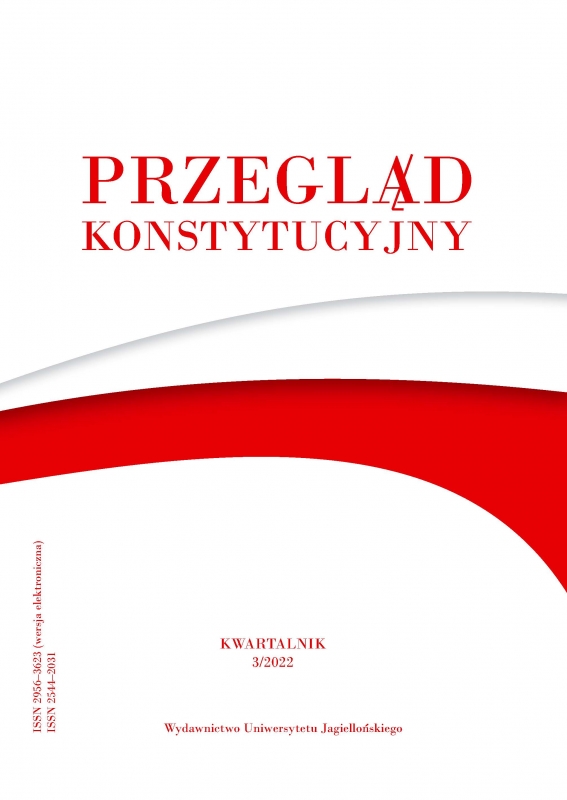Kontekst jest wszystkim. O trudnej sztuce komparatystyki „europejskiego” orzecznictwa sądów konstytucyjnych
Context is Everything. On the Difficult Art of “European” Comparative Studies Jurisprudence of Constitutional Courts
Author(s): Aleksandra Kustra-RogatkaSubject(s): Law, Constitution, Jurisprudence, Constitutional Law, Court case
Published by: Wydawnictwo Uniwersytetu Jagiellońskiego
Keywords: constitutional courts; European integration; comparative constitutional law; constitutional borrowing
Summary/Abstract: Comparative research of the case-law of constitutional courts concerning the membership of a given state in the EU (referred to in the article as “European” case-law of constitutional courts) requires taking into account various contexts in which this case-law is involved. The aim of this article is to indicate and analyze the most important of them, namely: the systemic context, the temporal context, the political context (including related problem of the politicization of the constitutional court), and the theoretical context. Moreover, the article draws attention to the necessity to contextualize “constitutional borrowings”, which acquires special meaning in connection with the perceived phenomenon of abuse of the “comparative argument”. Sometimes the distinguished contexts overlap, for example in the case of the temporal context and political context, but their separation allows for a better understanding of the complexity of comparative research on the European acquis constitutionnel. The specificity of this subject of legal-comparative research proves the correctness of the thesis that the contemporary constitutional comparative law must face several challenges. The first is the integration of the classical “horizontal” comparative method with the “vertical” dimension related to the influence of international and supranational norms on national constitutional systems. The second challenge is related to supporting an interdisciplinary approach to comparative constitutional law, which will take into account the perspective of social sciences, such as political science, sociology or history. The third challenge, then, is related to establishing the right balance between focusing on specific (not only) legal issues related to the analyzed issue and taking into account a broader vision of the directions of changes in European constitutionalism. The fourth challenge, in turn, concerns the popularization of the results of scientific research related to comparative studies of the “European” acquis constitutionnel. The last (and perhaps the most difficult) challenge facing the comparative research of “European” case law of constitutional courts is an attempt to answer the question to what extent this diverse jurisprudence conglomerate is a manifestation of the stability of constitutional law and the constitution, and to what extent it is a driving force for dynamic changes in contemporary public law.
Journal: Przegląd Konstytucyjny
- Issue Year: 23/2022
- Issue No: 3
- Page Range: 45-73
- Page Count: 29
- Language: Polish

